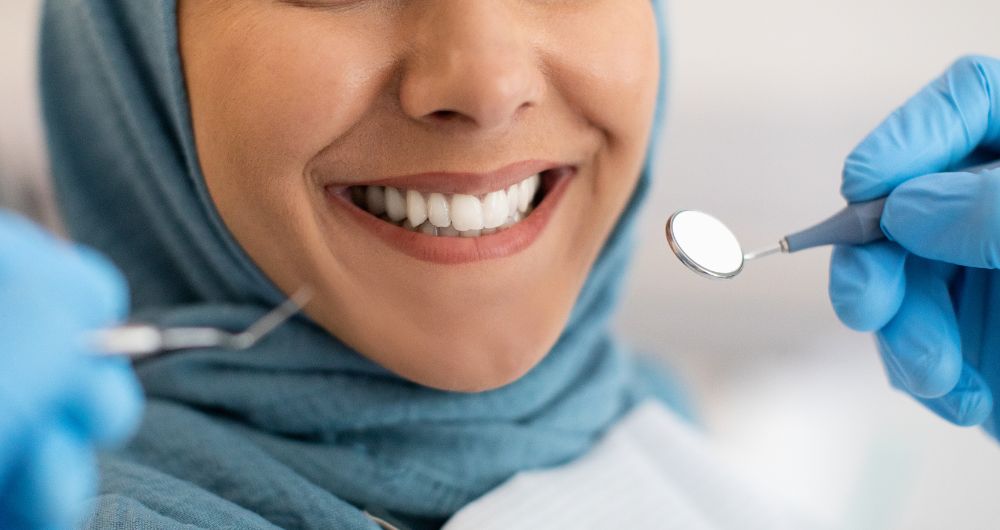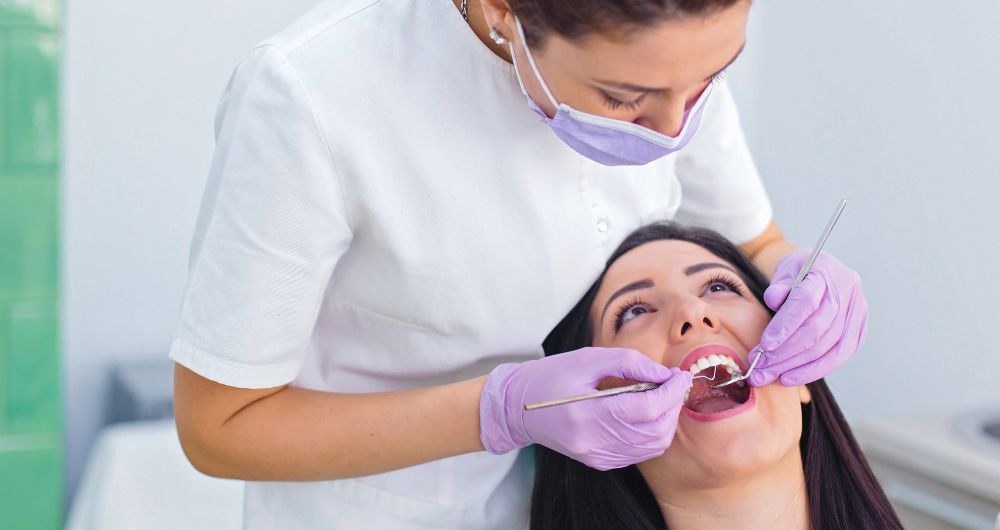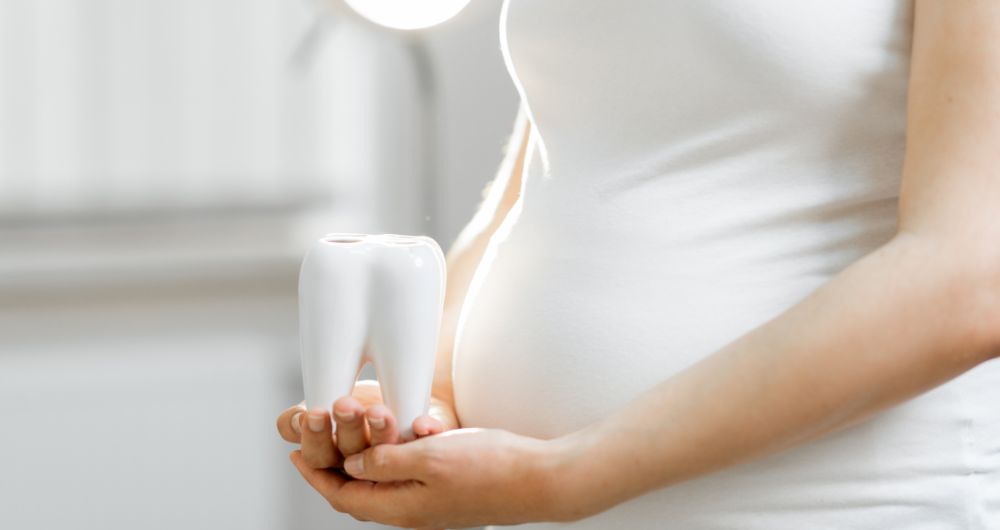As we all understand, pregnancy is an incredible journey marked by numerous changes and adjustments. Interestingly, one aspect often overlooked during this period is the necessity for changes in dental care. Dr. Jasdeep Sidana, an esteemed health expert, stresses that maintaining prime oral health during pregnancy is paramount for your well-being and your baby’s.
The Influence of Pregnancy on Oral Health
Dr. Sidana highlights the dramatic impact of pregnancy on a woman’s oral health, largely due to hormonal fluctuations. These changes can lead to oral health problems, including pregnancy gingivitis, a heightened risk of tooth decay, and pregnancy tumors.
Pregnancy Gingivitis
Pregnancy gingivitis, characterized by tender, inflamed gums that bleed easily, often rears its head during the second trimester. It arises due to the exaggerated response to plaque caused by elevated progesterone levels, explains Dr. Jasdeep Sidana. Without prompt and adequate dental care, pregnancy gingivitis can escalate into periodontitis. This severe gum disease can lead to tooth loss.
Increased Risk of Tooth Decay
There’s also an escalated risk of tooth decay during pregnancy, Dr. Sidana warns. Frequent changes in diet, coupled with increased snacking due to hunger pangs, contribute to this risk. Moreover, morning sickness exposes your teeth to higher acid levels, weakening and gradually eroding tooth enamel.
Pregnancy Tumors
Despite their alarming name, pregnancy tumors are usually benign and not a cause for panic. These non-cancerous growths or swellings occur on inflamed gums and are believed to be associated with excessive plaque. Dr. Sidana reassures patients that most pregnancy tumors recede after childbirth.

Essential Dental Care Tips During Pregnancy
While these potential oral health issues might seem daunting, proactive measures can help manage them. Dr. Jasdeep Sidana offers some crucial dental care tips for expecting mothers.
Maintain Good Oral Hygiene
Maintaining optimal oral hygiene is fundamental during pregnancy and should not be neglected. As Dr. Jasdeep Sidana rightly emphasizes, the importance of a robust oral hygiene routine cannot be overstated. The following strategies can help you maintain excellent oral health during your pregnancy journey:
- Brush Regularly: Brushing your teeth twice daily using fluoride toothpaste is a must. This practice helps to remove the plaque buildup that could lead to tooth decay and gum disease.
- Floss Daily: Regular flossing complements brushing by removing food particles and plaque from places your toothbrush can’t reach. Flossing once a day can significantly reduce the risk of developing gum diseases like gingivitis.
- Use an Antimicrobial Mouthwash: An antimicrobial mouthwash can further enhance your oral hygiene routine. This helps eliminate bacteria that might be missed during brushing and flossing.
- Replace Your Toothbrush Regularly: Dr. Sidana emphasizes that it is crucial to replace your toothbrush every three to four months or sooner if the bristles become frayed. Worn-out bristles don’t clean the teeth and gums effectively and can harbor harmful bacteria.
Regular Dental Check-ups
Consistent dental check-ups and cleanings are critical during pregnancy, insists Dr. Jasdeep Sidana. These appointments allow dental professionals to identify and manage oral health issues like pregnancy gingivitis or tooth decay. Here are the key takeaways from dental check-ups during pregnancy:
- Schedule Regular Visits: Dr. Sidana recommends more frequent dental visits during pregnancy due to hormonal changes.
- Inform your Dentist: Always disclose your pregnancy when scheduling your appointment.
- Routine Dental Work is Safe: Essential dental procedures, including cleaning and cavity fillings, are safe and important during pregnancy.
- Monitor Changes: Report any significant changes in your oral health to your dentist immediately.
Staying committed to these guidelines can contribute significantly to ensuring optimal oral health during pregnancy.

Eat a Balanced Diet
The importance of a balanced diet during pregnancy cannot be overstated. It supports your overall health and significantly influences your oral health. As Dr. Jasdeep Sidana asserts, diet plays a central role in maintaining strong teeth and gums. Consider the following dietary guidelines:
- Incorporate a Variety of Foods: Aim for a mix of fruits, vegetables, lean proteins, and whole grains to ensure a balanced nutrient intake.
- Focus on Key Nutrients: Dr. Sidana suggests pregnant women ensure adequate calcium and Vitamin D intake, which are crucial for dental health and your baby’s tooth development.
- Stay Hydrated: Drink plenty of water. It helps to wash away food residues and maintain healthy saliva production.
Remember, your diet directly affects your oral health. By focusing on a balanced, nutrient-rich diet, you are taking a significant step towards protecting your dental health and ensuring the healthy development of your baby’s teeth.
Limit Sugary Snacks and Drinks
One of the essential tips for maintaining oral health during pregnancy is to limit the consumption of sugary snacks and drinks. These items can significantly heighten the risk of tooth decay, warns Dr. Jasdeep Sidana. Here are some actionable steps to help manage sugar intake:
- Reduce Sugary Intake: Aim to minimize the consumption of sweets, pastries, and sugary beverages. These items are detrimental to oral health as the sugar content provides food for harmful bacteria in your mouth, leading to cavities.
- Brush After Indulging: If you do consume sugary items, Dr. Sidana suggests brushing your teeth soon afterward to minimize the sugar exposure on your teeth and gums.
- Opt for Healthier Alternatives: Whenever possible, choose healthy snacks like fruits, nuts, and cheese. These not only provide better nutrition but also help in maintaining a healthy oral environment.
By being mindful of your sugar intake and following these guidelines, you can actively contribute to maintaining optimal oral health during your pregnancy.
Rinse your Mouth after Morning Sickness
Morning sickness, a common pregnancy symptom, can inadvertently affect your oral health. Vomiting brings stomach acids into the mouth, which can erode tooth enamel if not promptly addressed. Dr. Jasdeep Sidana provides insightful advice on how to tackle this issue:
- Rinse After Nausea: After bouts of morning sickness, rinse your mouth with water and baking soda. This concoction effectively neutralizes the stomach acids that can damage tooth enamel.
- Wait Before Brushing: Don’t rush to brush your teeth immediately after vomiting, as this can further erode the softened tooth enamel. Rinse first and wait at least 30 minutes before brushing.
- Use a Fluoride Mouthwash: Regular fluoride mouthwash can help strengthen your teeth and make them more resistant to acid attacks.
Following Dr. Sidana’s expert advice, you can protect your oral health from the unwanted effects of morning sickness during pregnancy.
Conclusion
Pregnancy is an extraordinary phase that demands particular attention to oral health. By adhering to Dr. Jasdeep Sidana’s invaluable advice, pregnant women can prioritize their oral health for their sake and their baby’s future well-being. Remember, fostering healthy habits during pregnancy can yield lifelong benefits for you and your child.


